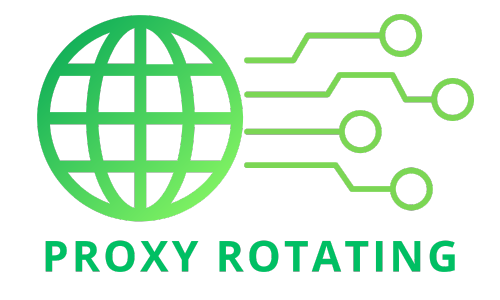Data is critical to individuals and organizations and is stored, uploaded, and shared across cyberspace in many forms. Therefore, the demand for data privacy protection is increasingly critical, especially in the context of sophisticated and complex cybercrime techniques. Hence, each needs to understand the regulations on data privacy to act and respond appropriately. So, what are the data privacy regulations? Let’s explore the following article
Definition of Data Privacy Regulations
Data privacy regulations are laws and guidelines designed to protect individuals’ personal information from misuse, unauthorized access, and exploitation. These regulations dictate how organizations collect, store, process, and share personal data, ensuring that individuals maintain control over their information. Critical aspects of data privacy regulations typically include:
- Consent: Organizations must obtain explicit consent from individuals before collecting or processing their data.
- Protection: Mandating that organizations implement adequate security measures to protect personal data from breaches or unauthorized access.
- Access rights: This principle grants individuals the right to access the data held by organizations and to request corrections if the data is inaccurate.
- Data minimization: Encouraging or requiring organizations to collect only the data necessary for the specified purpose.
- Purpose limitation: Limiting collected data to the purposes explicitly stated at the time of collection.
- Data breach notifications: This requirement requires organizations to notify relevant authorities and affected individuals in the event of a data breach.
- Right to erasure: This principle allows individuals to request the deletion of their personal data when it is no longer needed or if they withdraw consent.
Different countries and regions have specific data privacy regulations, with the General Data Protection Regulation (GDPR) in the European Union and the California Consumer Privacy Act (CCPA) in the United States being prominent examples. These laws continually evolve to keep pace with technological advancements and the increasing value and risk associated with personal data.
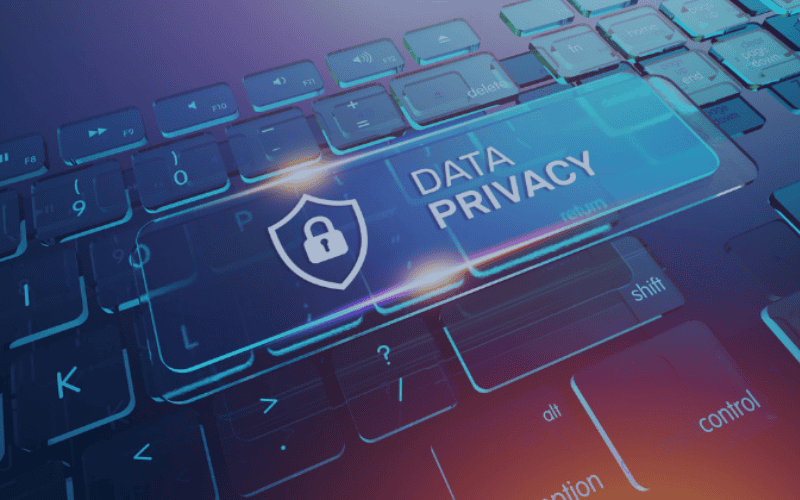
U.S. data privacy laws
The FTC
In the United States, the Federal Trade Commission (FTC) is crucial in enforcing data privacy laws and protecting consumer privacy and security. While the U.S. does not have a single, comprehensive federal law regulating the collection and use of personal data like the European Union’s GDPR, the FTC uses a variety of rules and principles to govern data privacy practices across different sectors. Here are some critical aspects of how the FTC influences data privacy:
- Section 5 of the FTC Act
The FTC’s primary tool to enforce data privacy is Section 5 of the FTC Act, which prohibits “unfair or deceptive acts or practices” in commerce. This broad mandate allows the FTC to act against companies that fail to protect consumer data adequately or mislead consumers about their privacy practices.
- Privacy and Security Enforcement
The FTC has brought legal actions against companies for failing to protect consumer data adequately or for deceptive data security and privacy practices. This includes cases, where companies fail to maintain secure systems or misrepresent the level of protection or privacy consumers, can expect.
- Guidelines and Policies
The FTC issues guidelines and best practices for businesses on handling personal data responsibly. These are not laws but serve as a framework for companies to design their privacy policies and data-handling practices to protect consumer privacy.
- Consumer Education
The FTC provides resources and education to consumers about protecting their privacy and their rights regarding personal data. This includes tips on understanding privacy policies, using security features, and recognizing risks online.
- Advocacy and Policy Development
The FTC also advocates for more robust privacy legislation and contributes to national and international policy development. It regularly reports to Congress on privacy issues and recommends ways to enhance consumer protections.
- Sector-Specific Rules
In addition to general data protection, the FTC enforces specific privacy laws related to particular sectors, such as:
- The Children’s Online Privacy Protection Act (COPPA) Regulates the collection of personal information from children under 13 by websites and online services.
- The Fair Credit Reporting Act (FCRA) governs the collection and use of consumer report information. It requires consumer reporting agencies to ensure their information is accurate and kept private.
- Cooperation with Other Agencies
The FTC often works with other federal and state agencies to enforce data privacy laws, reflecting the interconnected nature of data protection, consumer rights, and commerce regulation.
Through these actions and its regulatory authority, the FTC continues to be a central figure in shaping and enforcing data privacy standards in the United States, helping to ensure that personal data is handled with care and that consumer rights are respected.
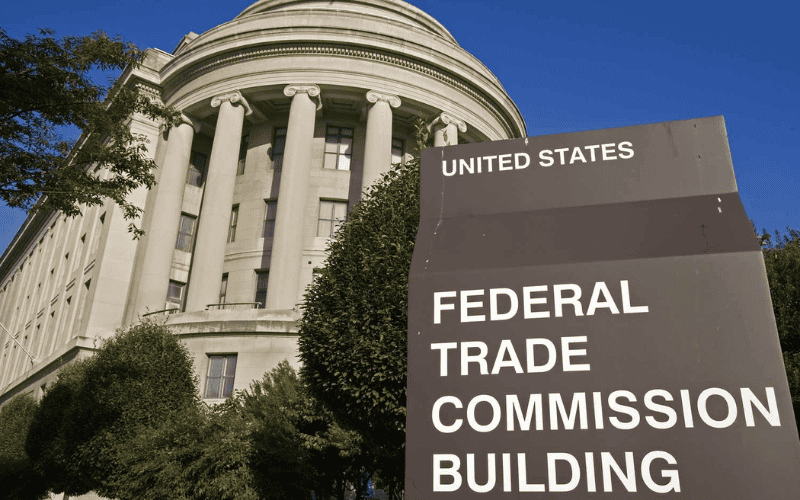
State Privacy Laws
California Privacy Rights Act (CPRA)
The California Privacy Rights Act (CPRA), effective from January 1, 2023, enhances and amends the earlier California Consumer Privacy Act (CCPA), providing more substantial data protection rights for residents of California. Key features of the CPRA include:
- Expanded consumer rights: Introduces new rights like the ability to correct inaccurate information and to limit the use of sensitive personal information.
- Sensitive personal information: Establishes stricter handling requirements for sensitive data such as health, financial data, and exact location.
- Data minimization and retention: This regulation mandates that businesses collect only necessary data and retain it only as long as necessary for the stated purposes.
- Protection for children’s data: Increases fines for violations involving data of consumers under 16 and requires opt-in consent for those under 13.
- California Privacy Protection Agency (CPPA): This bill creates a new agency dedicated to enforcing privacy laws, taking over from the California Attorney General’s office.
- Risk assessments and cybersecurity Audits: Businesses must conduct regular inspections and audits, especially when handling high-risk or sensitive data.
- Expanded scope and enforcement: This applies to businesses handling the data of 100,000 or more consumers or households, broadening the scope compared to the CCPA.
The CPRA significantly strengthens privacy protections, aligning California more closely with global data privacy standards such as the EU’s GDPR.
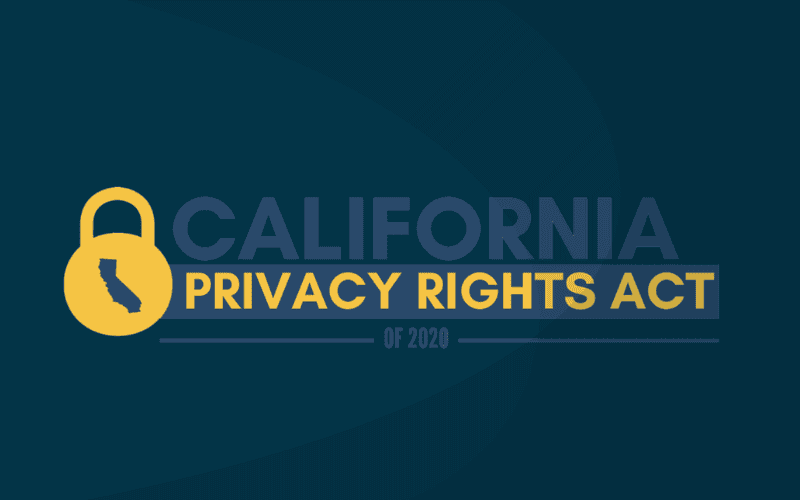
Virginia’s Consumer Data Protection Act (CDPA)
Virginia’s Consumer Data Protection Act (CDPA) is a significant piece of legislation that aims to protect the personal data of Virginia residents. The law, which took effect on January 1, 2023, establishes a framework for controlling and processing personal data in the state. Here are the key features of the Virginia CDPA:
- Consumer rights: The CDPA grants consumers several rights regarding their data, similar to those found in the CCPA and GDPR. These rights include:
- Right to Access: Consumers can access the data held by businesses.
- Right to Correct: Consumers can correct inaccuracies in their data.
- Right to Delete: Consumers can request the deletion of their data.
- Right to Data Portability: Consumers can receive their data in a portable and, to the extent technically feasible, readily usable format.
- Right to Opt-Out: Consumers can opt out of processing their personal data for targeted advertising, the sale of personal data, or profiling in furtherance of decisions that produce legal or similarly significant effects.
- Data protection assessments: The CDPA requires businesses to conduct data protection assessments for activities that use personal data for targeted advertising, sell personal data, process sensitive data, or involve profiling that can lead to legal or similarly significant effects. These assessments evaluate the risks associated with these processing activities.
- Sensitive data: The law includes special provisions for sensitive data, which includes personal data revealing racial or ethnic origin, religious beliefs, mental or physical health diagnosis, sexual orientation, citizenship or immigration status, and genetic or biometric data to identify a natural person uniquely, and the personal data from a known child.
- Scope and applicability: The CDPA applies to businesses that conduct business in Virginia or produce products or services targeted to Virginia residents and that either control or process personal data of at least 100,000 consumers or derive over 50% of gross revenue from the sale of personal data and process or control personal data of at least 25,000 consumers.
- Enforcement: Unlike other states’ privacy laws, the Virginia CDPA does not provide consumers a private right of action. Instead, enforcement is exclusively vested in the Office of the Attorney General of Virginia. Violations of the CDPA can lead to fines and corrective actions.
The Virginia CDPA reflects an expanding trend toward state-level data privacy regulations in the United States, providing robust consumer protections and obligations for businesses handling personal data.
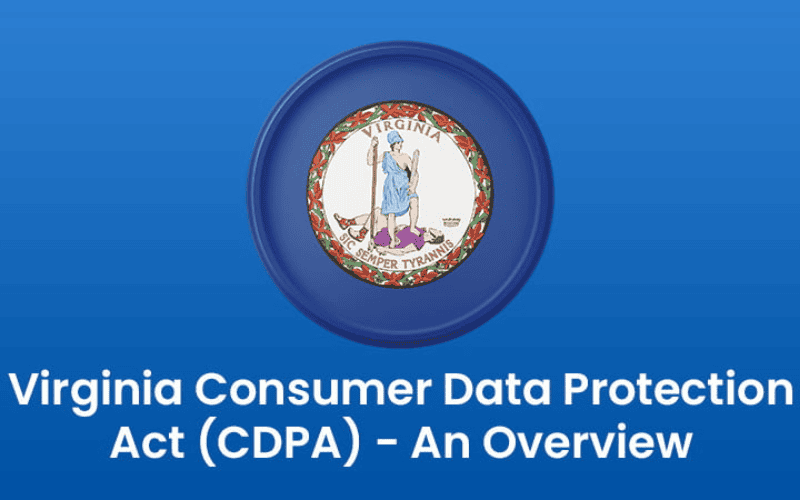
Colorado Privacy Act (CPA)
The Colorado Privacy Act (CPA) is a comprehensive data privacy law signed into law in July 2021 and took effect on July 1, 2023. It aims to protect the personal data of Colorado residents and shares similarities with other state privacy laws like California’s CPRA and Virginia’s CDPA. The CPA grants Colorado residents several rights over their data, including:
- Right to access: Consumers can access their data held by a controller.
- Right to correct: Consumers can correct inaccuracies in their personal data.
- Right to delete: Consumers can request the deletion of their data.
- Right to data portability: Consumers can obtain their data in a portable and usable format.
- Right to Opt-Out: Consumers can opt out of the processing of their personal data for targeted advertising, the sale of personal data, or profiling in significant decisions.
The Colorado Privacy Act underscores the growing trend of state-level privacy legislation in the United States. It provides comprehensive rights for consumers and clear obligations for businesses regarding the handling of personal data.

Utah Consumer Privacy Act
The Utah Consumer Privacy Act (UCPA) is a privacy law signed into law on March 24, 2022, and is set to take effect on December 31, 2023. It aims to protect the personal data of residents of Utah by granting them certain rights and imposing specific obligations on businesses handling their data. The UCPA is similar to other state privacy laws like Virginia’s CDPA and Colorado’s CPA, though it is generally considered more business-friendly. The UCPA grants consumers several rights regarding their data, including:
- Right to access: Consumers can access personal data held by a data controller.
- Right to delete: Consumers can request the deletion of their data.
- Right to data portability: Consumers can obtain a copy of their personal data in a portable and readily usable format to the extent technically feasible.
- Right to Opt-Out: Consumers can opt out of processing their data for targeted advertising or the sale of their data.
The UCPA reflects Utah’s approach to balancing consumer privacy rights with the needs of the business community. It provides a framework that protects personal data while also considering the practical implications for businesses operating within the state.
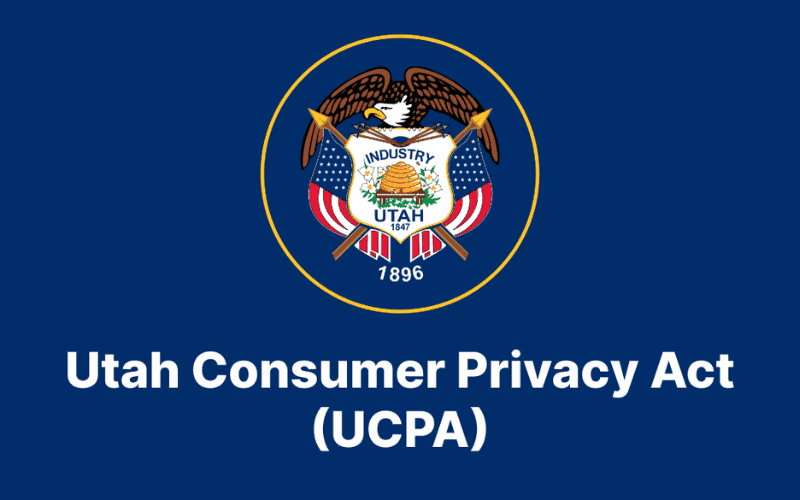
Connecticut’s Data Privacy Law
Connecticut’s data privacy law, known as the Connecticut Data Privacy Act (CTDPA), was signed into law on May 10, 2022, and is scheduled to take effect on July 1, 2023. The CTDPA mirrors aspects of other state privacy laws like Virginia’s CDPA and Colorado’s CPA, providing robust protections for the personal data of Connecticut residents. The CTDPA grants several important rights to consumers regarding their data, including:
- Right to access: Consumers can access the data held by businesses.
- Right to correct: Consumers can correct inaccuracies in their data.
- Right to delete: Consumers can request the deletion of their data.
- Right to data portability: Consumers can receive their data in a commonly used and machine-readable format.
- Right to Opt-Out: Consumers can opt out of the processing of their personal data for targeted advertising, the sale of their personal data, or profiling in significant decisions.
The Connecticut Data Privacy Act reflects a growing trend in the United States toward stronger state-level data privacy protections. It offers Connecticut residents control over their personal data while imposing clear obligations on businesses regarding the handling of such data.
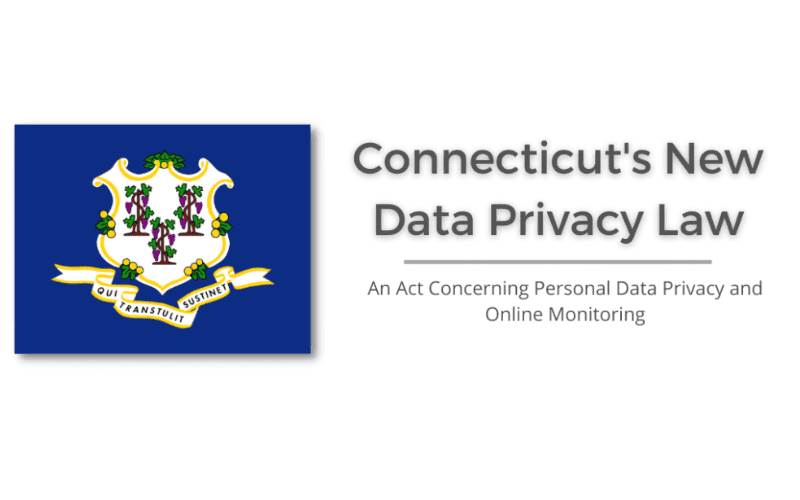
The Oregon Consumer Privacy Act (OCPA)
The Oregon Consumer Privacy Act shares similarities with privacy laws in California, Virginia, and Colorado, focusing on consumer rights and business obligations regarding data privacy. Consumer Rights: The OCPA, as proposed, would grant Oregon consumers several essential rights concerning their data:
- Right to Access: Consumers can access the data collected by businesses.
- Right to Correction: Consumers could correct inaccuracies in their data.
- Right to Deletion: Consumers could request the deletion of their data.
- Right to Data Portability: Consumers can obtain their data in a portable and usable format.
- Right to Opt-Out: Consumers could opt out of the sale of their personal data and from certain types of processing, such as targeted advertising and profiling.
While the Oregon Consumer Privacy Act has not been finalized or passed into law, its proposal indicates a growing trend among U.S. states to adopt more stringent data privacy protections, reflecting concerns over consumer data rights and privacy. Businesses in Oregon and those interacting with Oregon residents should stay informed about this potential legislation and be prepared to adapt to new requirements once enacted.
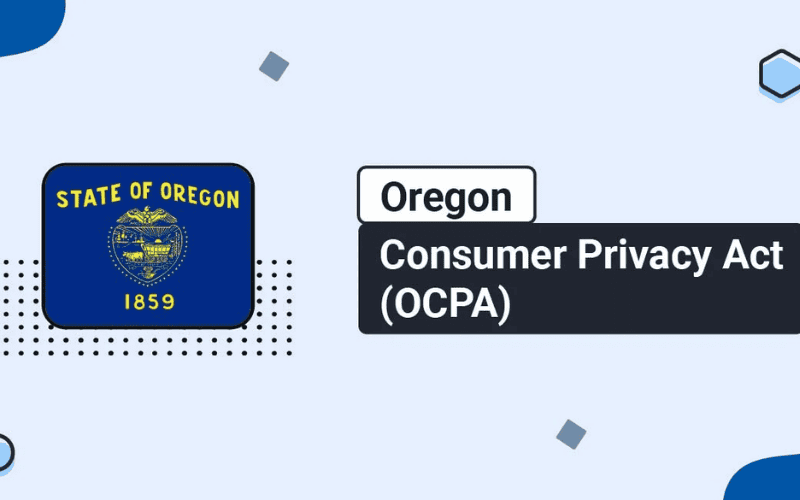
The Texas Data Privacy and Security Act (TDPSA)
While Texas has been active in enacting laws related to cybersecurity, data breaches, and the protection of certain types of personal information, no comprehensive consumer data privacy law has been enacted, similar to California’s CCPA or Virginia’s CDPA.
Existing Texas Data Protection Laws Include:
- Texas Identity Theft Enforcement and Protection Act requires businesses to implement and maintain reasonable procedures to protect sensitive personal information. It also mandates prompt notification of affected individuals in the event of a data breach involving sensitive personal information.
- Texas Health Privacy Law: Complements federal HIPAA regulations and provides additional protections for health data at the state level, including stricter requirements for handling electronic health records.
- Texas Business and Commerce Code: Contains provisions that require businesses to protect personal identifying information and to provide notifications to individuals in case of a data breach.
While Texas has considered various proposals for comprehensive data privacy legislation, none have been enacted into law since my last update. Businesses in Texas should continue to comply with applicable federal and state laws and stay informed about any new legislative developments in data privacy and security, as changes could impose new compliance requirements.
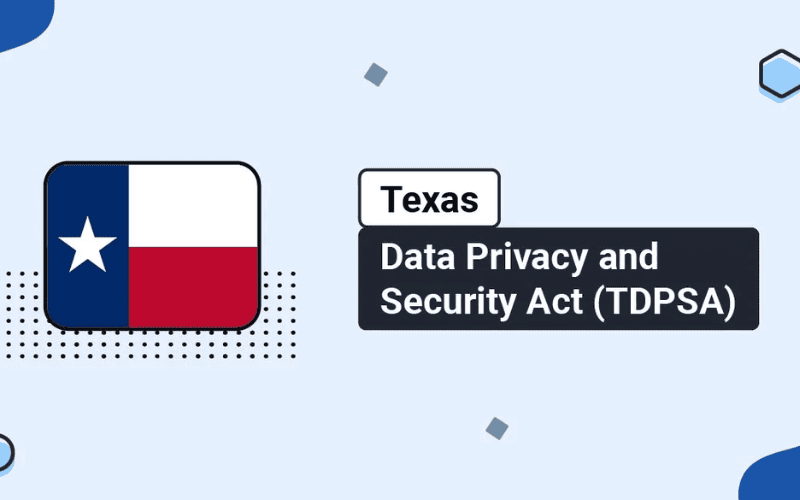
The Delaware Personal Data Privacy Act (DPDPA)
Delaware has enacted legislation to protect personal information and improve data security through several key statutes:
- Delaware Online Privacy and Protection Act (COPPA) addresses internet privacy issues. It requires operators of commercial websites and online services that collect personally identifiable information from Delaware residents to post a conspicuous privacy policy. The policy specifies what it must include and mandates compliance with its terms.
- Delaware Computer Security Breaches Act: This law requires businesses and governmental entities to notify Delaware residents of security breaches involving personal information. It outlines what constitutes a security breach, the type of personal information covered, and the notification timing and methods requirements.
- Delaware Consumer Privacy Act (House Bill 262): Proposed in 2021, this bill aimed to create consumer privacy rights similar to those in California’s CCPA, including rights to access, correction, deletion, and portability of personal data, as well as the right to opt-out of the processing of personal data for targeted advertising, sale, or profiling. However, as of my last update, this bill had not been enacted.
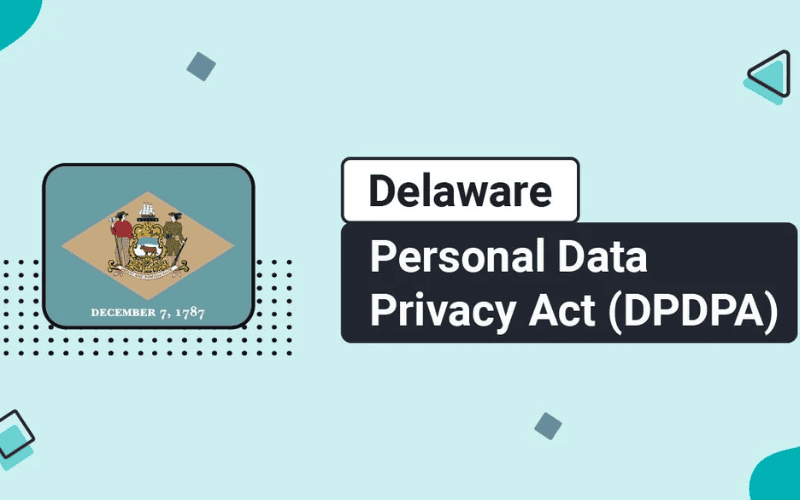
NewYork SHIELD Act
The New York SHIELD Act, effective March 21, 2020, enhances data security and privacy protections for New York residents by updating existing laws. Key features of the SHIELD Act include:
- Expanded scope: This policy applies to any business handling the private information of New York residents, regardless of its location.
- Broader definition of private information: Now includes biometric data and online account access credentials (like email addresses combined with passwords).
- Data breach notification requirements: Businesses must notify affected New York residents of unauthorized access to or acquisition of their private information.
- Data security requirements: Requires businesses to implement reasonable administrative, technical, and physical safeguards to protect private information.
- Penalties for Non-compliance: Enforced by the New York Attorney General with financial penalties for failing to comply.
The SHIELD Act mandates proactive data security measures and timely breach notifications, aiming to protect the personal information of New York residents more effectively.
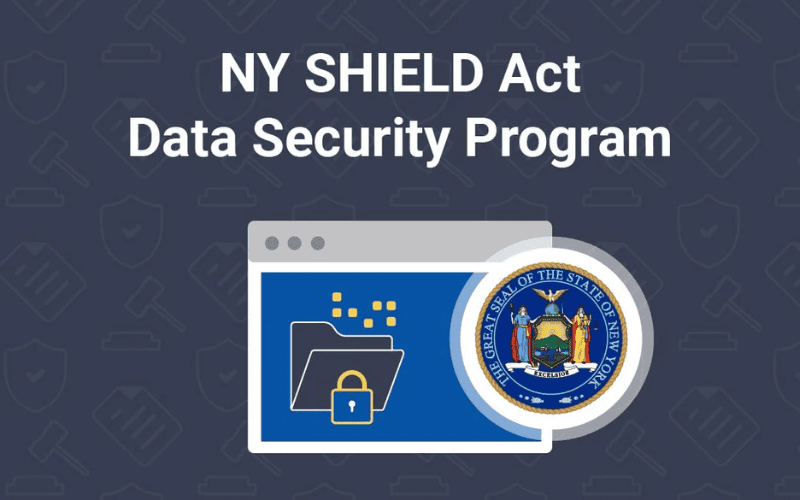
European Data Privacy Laws
The General Data Protection Regulation (GDPR)
The General Data Protection Regulation (GDPR) is a comprehensive data protection law that occurred on May 25, 2018, across all European Union (EU) member states. It represents one of the most significant legislations on data privacy and has set a benchmark globally, influencing numerous countries outside of the EU to adopt similar regulations.
The GDPR strengthens and clarifies the rights of EU residents as data subjects by granting them numerous rights, including:
- Right to Access: Data subjects have the right to know whether their data is being processed, where, and for what purpose. They also have the right to obtain a copy of the personal data, free of charge, in an electronic format.
- Right to Be Forgotten (Right to Erasure): Data subjects can demand the erasure of personal data related to them in certain circumstances.
- Right to Data Portability: Individuals have the right to receive their personal data and to transmit that data to another controller.
- Right to Rectification: Individuals are entitled to have personal data rectified if it is inaccurate or incomplete.
- Right to Object and Right to Restrict Processing: Individuals have the right to object to the processing of their data and the right to restrict processing under specified conditions.
The GDPR sets out severe penalties for non-compliance, up to 4% of annual global turnover or €20 million (whichever is greater). This maximum fine can be imposed for the most severe infringements, e.g., not having sufficient customer consent to process data or violating the core of Privacy by Design concepts.
The GDPR has reshaped how organizations across the region (and beyond) approach data privacy, making data protection a legal requirement and a fundamental right.
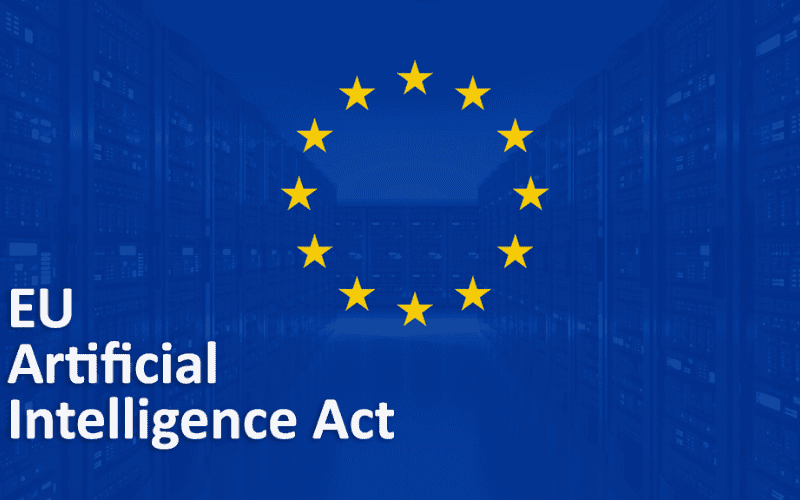
Digital Services Act (DSA)
The Digital Services Act (DSA) is a significant piece of legislation by the European Union aimed at regulating digital platforms to ensure safer digital spaces where users’ fundamental rights are protected and to establish a level playing field for businesses. The DSA and the Digital Markets Act (DMA) represent part of the EU’s comprehensive approach to updating and reinforcing its rules for digital services. The DSA was proposed in December 2020 and was agreed upon in principle by EU lawmakers in April 2022.
- Scope: The DSA applies to all digital services that connect consumers to goods, services, or content, including online platforms like social media, online marketplaces, and other Internet services.
- Transparency Requirements: One of the core aspects of the DSA is increasing transparency, particularly concerning algorithms used to recommend content or products to users. Platforms will need to explain how their algorithms work and help users understand why they are seeing certain content.
- Enhanced Accountability: The DSA requires larger platforms and online search engines to take greater responsibility for tackling illegal content online and ensuring user safety. This involves quicker removal of unlawful content and more robust measures against disinformation.
- Protection of Fundamental Rights: The DSA aims to protect users’ fundamental rights online, ensuring freedom of expression and information while balancing this with copyright and data protection laws.
- Dispute Resolution and Redress: The DSA establishes mechanisms for users to challenge content moderation decisions. This includes platform requirements to provide users straightforward tools to flag content and appeal decisions.
- Addressing Disinformation: The DSA puts specific obligations on massive platforms to prevent the misuse of their systems by taking risk-based actions. This includes managing risks of disinformation and addressing vulnerabilities in their systems.
- Enforcement and Penalties: Enforcement will be carried out by national authorities, and a new European Board for Digital Services will ensure coordination. Non-compliance can lead to significant penalties, potentially up to 6% of a company’s global annual turnover.
The DSA is part of the EU’s broader strategy to shape the digital economy. It ensures it works for consumers, businesses, and society by fostering innovation while imposing obligations on digital giants to be more accountable for their content and services. This legislation is poised to substantially impact the operations of online platforms operating within the EU.
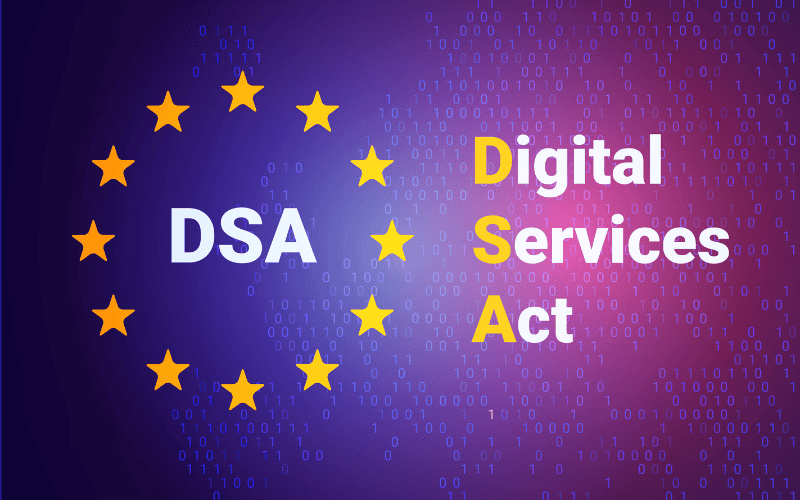
The Digital Markets Act (DMA)
The Digital Markets Act (DMA) is a major regulatory framework introduced by the European Union to ensure fair competition and transparency in digital markets. It particularly targets the practices of large online platforms referred to as “gatekeepers.” This legislation complements the Digital Services Act (DSA) as part of the EU’s comprehensive approach to updating its digital policies. The DMA was formally adopted in 2022 and aims to address the systemic issues brought about by the dominant positions of the largest tech companies.
Key features of the Digital Markets Act:
- Definition of Gatekeepers: The DMA defines gatekeepers as large online platforms that serve as critical gateways between businesses and consumers. These are typically companies that control data or platforms that businesses must use to reach consumers and significantly impact the internal market.
- Obligations for Gatekeepers: Gatekeepers are subject to specific obligations under the DMA to ensure they do not misuse their market power to disadvantage competitors. These obligations include:
- Prohibiting the combination of personal data across services without explicit consent.
- Allowing users to unsubscribe easily from core platform services.
- Ensuring that sending messages or making voice or video calls across messaging services can be done interoperably.
- Providing companies with access to data generated on their platforms.
- Prohibitions: The DMA sets out specific practices that gatekeepers are prohibited from engaging in, such as:
- Preventing consumers from linking up to businesses outside their platforms.
- Favoring their services over those of others on their platforms.
- Preventing users from uninstalling any pre-installed software or app.
- Enforcement and Penalties: The European Commission is responsible for enforcing the DMA. Non-compliance can lead to significant fines, up to 10% of the company’s worldwide annual turnover, and, in repeated cases, up to 20%. Moreover, structural remedies (such as divestiture of certain businesses) could be imposed for recurrent non-compliance.
- Promoting Competition: The DMA is designed to open up digital markets to new entrants and innovators by reducing entry barriers and leveraging market power by established giants.
- Dynamic Updating: The DMA includes provisions for dynamically updating the list of obligations as markets evolve, allowing the EU to respond flexibly to changes in the digital landscape.
The DMA represents a bold step by the EU to curb the dominance of the biggest tech companies and ensure that the digital market remains competitive and fair. It seeks to balance the scales in favor of smaller businesses and protect consumers from unfair practices while promoting innovation and growth in the digital economy.
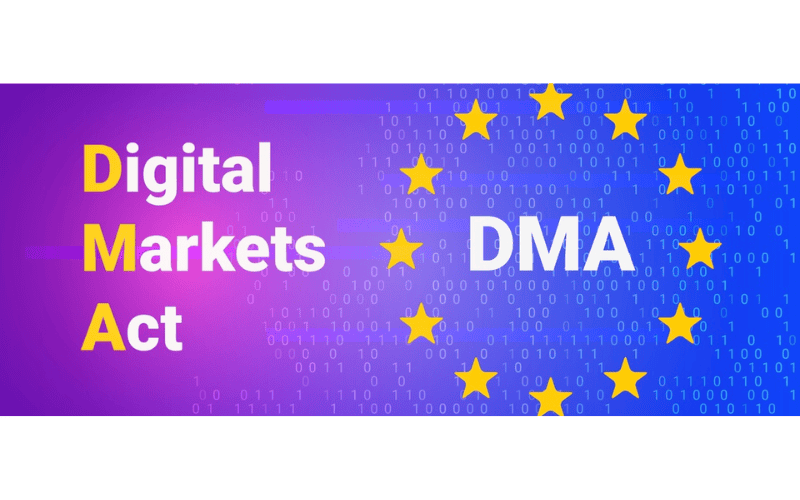
The EU-US Data Privacy Framework
The EU-US Data Privacy Framework is a new agreement intended to facilitate the safe transfer of personal data from the European Union to the United States while ensuring adequate data protection measures align with EU privacy standards. This framework is a successor to the Privacy Shield agreement, which the Court of Justice of the European Union (CJEU) invalidated in July 2020 in the Schrems II decision due to concerns over US surveillance laws and the protection of EU citizens’ data privacy rights.
Critical aspects of the EU-US Data privacy framework
- Enhanced data protection: The new framework is designed to address the deficiencies identified by the CJEU. It includes more substantial data protection commitments from the US concerning US intelligence authorities’ access and use of EU personal data.
- Binding safeguards: The US has committed to implementing new safeguards to ensure that data collection for national security purposes is necessary and proportionate, aligning more closely with European privacy expectations.
- Redress mechanism: A significant aspect of the new framework is establishing a redress mechanism, including an independent Data Protection Review Court (DPRC). This body will allow EU citizens to lodge complaints by US national security agencies about accessing their data, which will be investigated and resolved by an independent judge.
- Annual review: Similar to the Privacy Shield, the EU-US Data Privacy Framework will be subject to a yearly review to ensure that the agreed-upon standards are continuously met and that the protections remain effective in light of evolving technologies and challenges.
- Business impact: For businesses, this framework aims to restore the legal certainty for transatlantic data transfers, which is crucial for companies that rely on processing personal data across the EU and the US. Compliance with this framework will maintain smooth operations and avoid legal repercussions.
- Ongoing negotiations and Legal Scrutiny: While the agreement in principle was announced, the final text and operational details continue to undergo negotiation. They will likely face scrutiny to ensure they withstand legal challenges in the EU.
This framework is vital for maintaining the robust economic relationship between the EU and the US. It provides a clear legal basis for transatlantic data flows, which are integral to the operations of numerous businesses and services across both regions.
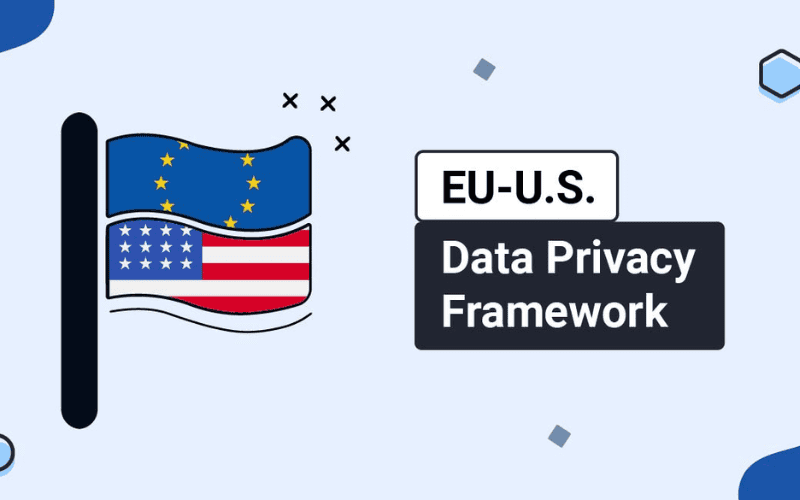
The EU AI Act
The EU Artificial Intelligence (AI) Act is a pioneering legislative proposal to regulate the use of AI systems within the European Union. Introduced in April 2021, this framework ensures that AI technologies are safe, transparent, and accountable. Here are the key features of the AI Act:
- Risk-based classification: AI systems are categorized by risk levels, from minimal to unacceptable risk, with corresponding regulatory requirements.
- Prohibited practices: Certain uses of AI are banned, including manipulative or exploitative applications and real-time biometric identification in public spaces for law enforcement (with exceptions).
- Requirements for high-risk AI: High-risk AI applications, such as those in healthcare and policing, must adhere to strict standards, including data quality, transparency, and human oversight.
- Enforcement: EU member states will appoint authorities to ensure compliance, with penalties for non-compliance reaching up to 6% of a company’s global annual revenue.
- Global impact: The Act aims to set an international standard for AI regulation, focusing on AI technologies’ ethical development and deployment.
This Act represents a significant step towards creating a regulated digital environment for AI, balancing innovation with consumer and societal protection.

Other International Data Privacy Laws
Brazil’s General Law for the Protection of Personal Data (LGPD)
Brazil’s General Law for the Protection of Personal Data (Lei Geral de Proteção de Dados Pessoais, LGPD), which went into effect in September 2020, represents Brazil’s comprehensive data protection legislation. Inspired by the European Union’s General Data Protection Regulation (GDPR), the LGPD aims to strengthen the privacy rights of individuals in Brazil and imposes strict requirements on the processing of personal data.
The LGPD marks a significant step in protecting personal data and privacy in Brazil, aligning the country with international data protection standards and principles. It underscores the importance of transparent, secure, and lawful handling of personal data, promoting greater trust and safety for individuals and businesses alike in the digital environment.
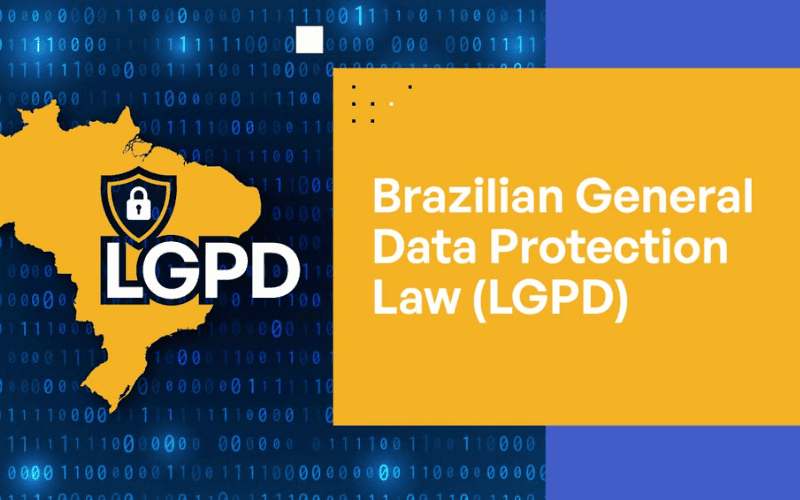
Canada’s Personal Information Protection and Electronic Documents Act (PIPEDA)
Canada’s Personal Information Protection and Electronic Documents Act (PIPEDA) is a federal privacy law that governs how private sector organizations collect, use, and disclose personal information in commercial business activities across Canada. Enacted in April 2000, PIPEDA applies to personal information handled by private sector organizations federally and in provinces and territories without privacy laws deemed equivalent to PIPEDA.
One of the core principles of PIPEDA is that organizations must obtain an individual’s consent when they collect, use, or disclose the individual’s personal information, except in specific circumstances defined by the law.
Besides, Individuals can file complaints with the Office of the Privacy Commissioner of Canada if they believe an organization has not complied with PIPEDA. The Commissioner’s office can investigate complaints, make findings, and recommend remedies, including seeking orders from the Federal Court.
PIPEDA reflects Canada’s commitment to protecting personal privacy and fostering trust in the digital economy. It strikes a balance between an individual’s right to privacy and the need for organizations to use personal information for legitimate business purposes.
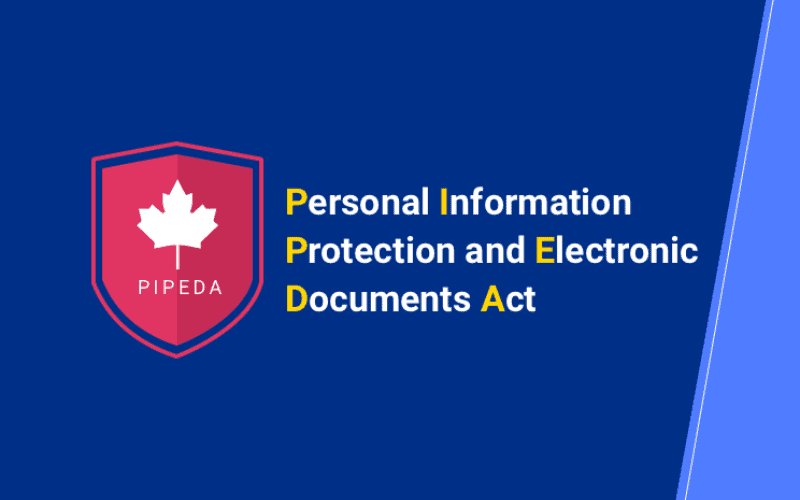
China’s Personal Information Protection Law (PIPL)
China’s Personal Information Protection Law (PIPL), which took effect on November 1, 2021, represents a significant step in the country’s efforts to regulate the collection, storage, use, processing, transmission, provision, and disclosure of personal information. The PIPL is often compared to the European Union’s General Data Protection Regulation (GDPR) due to its comprehensive individual data protection approach and strict regulatory framework. It’s part of China’s broader push to strengthen its cybersecurity and data protection legal framework, complementing the Cybersecurity Law of 2016 and the Data Security Law of 2021.
The PIPL is a landmark law for China, indicating the country’s increasing emphasis on personal data protection in the digital age. It presents significant compliance challenges for domestic and international businesses operating in or with China, especially those processing large amounts of personal information.
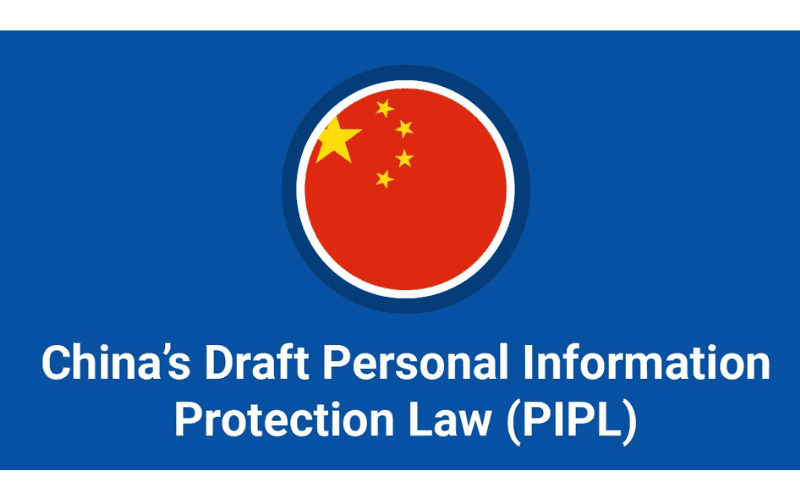
Vietnam’s Cybersecurity Law
The Cybersecurity Law (No. 26/2018/QH14) was passed by the National Assembly of Vietnam on June 12, 2018, and came into effect on January 1, 2019. The law’s purpose is to ensure that activities in cyberspace do not harm national security, public order, social safety, and the legal rights and interests of agencies, organizations, and individuals.
The Cybersecurity Law applies to activities in cyberspace within the territory of Vietnam, including:
- Activities of agencies, organizations, and individuals in cyberspace;
- Activities of providing and using network services;
- State management activities on cybersecurity.
Furthermore, the Law stipulates the rights and obligations of agencies, organizations, and individuals as follows:
Rights:
- The right to freedom of speech, press freedom, and freedom of information access in cyberspace;
- The right to protect their legal rights and interests in cyberspace;
- Other rights as prescribed by law.
Obligations:
- To comply with legal regulations on cybersecurity;
- To use network services legally and responsibly;
- To protect the confidentiality of personal information and information of agencies and organizations;
- To report and provide information and documents as requested by competent state agencies.
Thus, the Cybersecurity Law is an important legal document that aims to protect national security, public order, social safety, and the legal rights and interests of agencies, organizations, and individuals in the online environment.
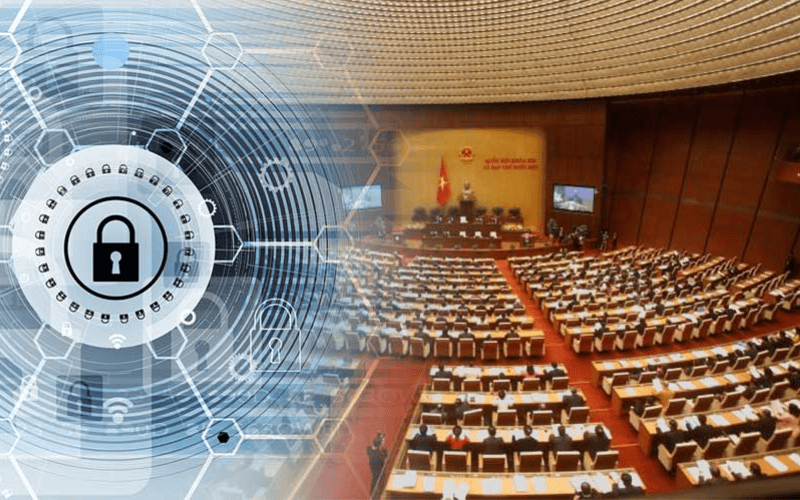
The Importance of Compliance
The data of each individual and organization is essential, and non-compliance with data privacy can lead to serious risks and consequences for both individuals and organizations. Some consequences include:
- Loss of control over personal data: Your data may be collected and used without your knowledge or consent.
- Identity theft risk: Your personal information may be stolen and used to impersonate you or commit other fraudulent acts.
- Harassment or scam risk: Your data may be used to harass or scam you to extort property…
The consequences mentioned above highlight the importance of protecting data privacy and the need to implement this right earnestly. Compliance with data privacy is necessary to protect individuals and organizations from serious risks and consequences.
Additionally, agencies, organizations, and individuals must closely cooperate, jointly enforcing regulations to achieve the highest effectiveness of data privacy rights.
For data privacy to develop further in the future, organizations need to implement measures to minimize the risks and consequences of non-compliance with data privacy:
- Identify and assess their data privacy risks.
- Implement technical and organizational control measures to protect personal data.
- Train employees on data privacy.
- Have a clear and transparent privacy policy.
- Provide individuals with control over their data.
Furthermore, the state needs to improve and supplement laws on data privacy to prevent increasingly severe consequences and create a healthy and stable online environment.
Each individual, organization, and government agency needs to work together to protect data privacy by clearly understanding the regulations on data privacy and the risks and consequences of non-compliance. Complying with data privacy regulations helps preserve individual rights and contributes to the sustainable development of the digital economy.
This is an overview of data privacy and the data privacy regulations that everyone should be aware of when participating in the digital economy. Hopefully, through this article by Proxy Rotating you can better understand data privacy and thus comply with the regulations to contribute to a healthy, practical online space.
See more:
Data privacy management software
Countries with data privacy laws
